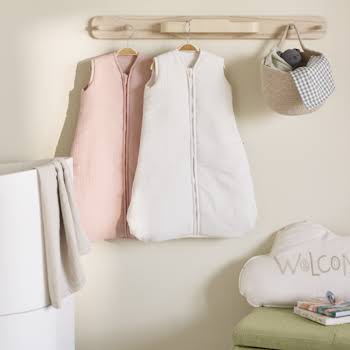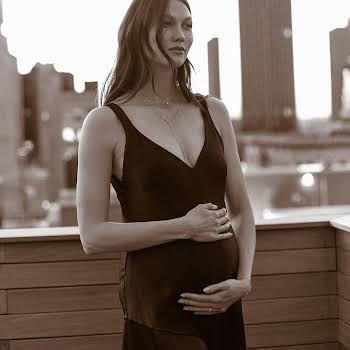
Meghan’s rumoured home birth: Unnecessary trial or the most rewarding way to have a baby?
By Amanda Cassidy
10th Apr 2019
10th Apr 2019
It’s been reported that Meghan Markle is keen to deliver the next royal baby at her new home, Frogmore Cottage. But are there additional risks to this type of delivery? Amanda Cassidy speaks to those who have opted for a home birth.
She has attracted attention for everything from her unique pregnancy style to her all-natural approach to childbirth. And while we obviously don’t know Harry and Meghan’s actual birth plan, it has been suggested that the former Suits actress is planning to bring the next royal baby into the world in the comfortable surroundings of her new home.
But critics have been quick to point out that Meghan’s age and the fact that she will be a first-time mother, means she might not get the sugar-coated birth well all hope for.
Doula, mother of three and coordinator of AIMS (the Association for Improvements in Maternity Services) Krysia Lynch says there are a lot of misconceptions about labouring at home. “Home birth is a safe healthy option for low-risk women and I believe in women’s capacity to birth their own babies without unnecessary intervention, including a time limit.
“In Ireland, there are three ways you can have your baby at home – through the HSE, as an option through some hospitals, or privately. Many people don’t know that you can have a home birth, or that you can have a homebirth as a first-time mum. There may be a high transfer rate to hospital for those mums, but the link between midwives and hospitals is also hugely important.”
So who chooses home births? Kysia says that in her experience there are three distinct groups.
“There are the second or third-time parents who had a difficult experience in hospital on their first child that they don’t want to repeat. These are the women who want focused care from the same person throughout their labour. The second group are those who are very health and fitness-focused, who have a certain lifestyle that homebirth fits in well with. The third group are those who can’t leave their children to go into a hospital. They are often those with no family support here, those from outside of Ireland. They need to be at home to have their baby because they have no one to leave their other children with.”
Between 200 and 300 women a year in Ireland choose to have their children at home – more accurate statistics are unavailable because of the differing ways home births in Ireland are recorded. Many believe that labour with a midwife in the family surroundings are calmer, safer and more comfortable than a hospital birth which some describe as overly ‘clinical’. Karen chose to have her baby at home.
“My thinking was that I was pregnant, not sick, so why would I choose to go into a hospital? For me, it is an unfamiliar setting with not much continuity of care. There are more risks of infection and intervention and they start the timer once you walk through the door. The birth was hard but afterwards, I showered in my own bathroom and snuggled up in my own bed with my baby”.
Elizabeth said her experience in hospital during the delivery of her daughter made her opt for a home birth second time around. “There were a lot of drugs involved, I felt quite out of control. In fact, I’m sure those feelings of being overwhelmed contributed to my PND in later months.” Amy, another mother, who had her daughter in a birthing pool at home said people thought she was mad for delivering her child outside of the traditional hospital setting. “People looked at me differently, some actually openly criticised my choice.
“I think we need to ask ourselves how medicalised childbirth has become the default position. What are we so afraid of?”
Home birth was the standard method of delivery until modern medicine took over. Studies have found that compared with hospital deliveries, home birth is linked to fewer maternal interventions and shorter recovery times. But the issue is that while home births are great for low-risk mothers, doctors are seeing increasingly complicated pregnancies that come hand in hand with older maternity ages, multiple babies (often as a consequence of IVF) and rising obesity levels.
There have been confusing statistics over the years about the safety of home deliveries. A few years back, the American Journal of Obstetrics carried out a study of industrialised nations which found that planned home births were two to three times more at risk of neonatal death than a planned hospital delivery (this was later placed under review after criticisms from midwife groups). Such conflicting medical studies and the notoriously cautious nature of most obstetricians means that the uptake still remains relatively low.
It also means that the fewer women who opt for a home birth, the weaker the infrastructure will be. Another issue, according to Consultant in Obstetrics, Phillip Steer, is that many first time mothers underestimate how unstraightforward human birth can be.
“Over the last half a million years, the pelvis has become much smaller to adapt to our upright posture. Complications during labour are common – around half of pregnant women will have or develop a complicating factor – high blood pressure or diabetes, others develop a problem during labour that may require emergency transfer to hospital which can be very traumatic.”
Elaine’s birth plan didn’t go to plan. “Four hours into the labour, I gave up and begged to get to the hospital for drugs. I felt like a complete fool, but everyone was so kind and my baby was healthy which was the most important thing. I think I was convinced by the idea of home birth but the reality is a lot different.”
Sugar-coating?
For many mothers, having their baby in their living room at home without the clinical setting found in hospitals is extremely special. Most of those who delivered successfully at home told us that they wouldn’t have had it any other way. Meghan and Harry are first-time parents who seem to favour an all-natural approach to parenthood. Any home birth considered by them will be unlike any other. Privacy, too, is of paramount concern for the couple who are reported to have been horrified by the media circus that surrounded the birth of William and Kate’s children outside the Lido wing of St Mary’s hospital. But some things are the same, says Krysia, no matter who you are.
“At some stage, every pregnant mother-to-be has an ‘oh sh*t moment and that it is perfectly normal. It can be during the pregnancy, or half-way through a home birth, but everyone has a wobble at some stage. Let’s not forget, though, that the number one reason people choose homebirth isn’t for lovey-dovey reasons – it is because it is a better option for them. My advice for Meghan is to do your research, and if you feel home birth is for you, then go for it!”
You can find more information on Home Birth in Ireland here
Association for Improvements in Maternity Service
Facebook Group Home Birth Community of Ireland
Feature image via BBC























